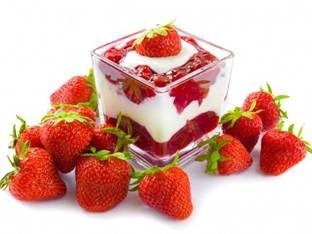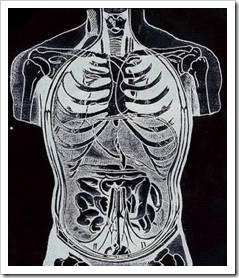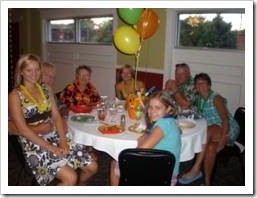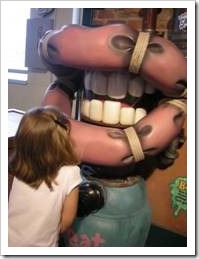
Gal and I used to eat whatever our parents ate. We went to the supermarket and picked from the shelves the exact same things we had seen our parents choose or whatever was on sale. It took us 5 years of managing our own economy and a sick girl to discover that what we eat and how we eat has a strong impact on our life. Some things you just cannot learn at school.
It happened more than 20 years ago and since then, we have learned more and more about what to eat to be healthy in body and mind. I know that not everyone is convinced that healthy eating is the right solution and I understand. After all, the concept of “health” is very wide. When I sit with my clients at a cafe and order iced coffee with ice cream and whipped cream, I am 100% convinced it is healthy for my soul. So we may not agree about what food is healthy, but I think we can all agree on how to eat.
We live a very fast lifestyle. All the people around you will tell you they have no time – no time for the kids, no time for fun, no time for hobbies, no time for friends and no time for eating. Many shops and massive businesses have come to life to cater for this “fast food” lifestyle. We grab a shake, eat a meal on the way, in the car, during a meeting, while watching TV, during phone conversations and when reading a book. We think we are saving time, but we are making it harder for our digestive system to make the best of our food and this creates a never-ending cycle. What we eat is not digested properly, we lack essential nutrients, we feel tired, we become ineffective and what usually takes us 2 hours, suddenly takes us 4 and we have just lost 2 hours of our precious time, so we need to catch up and save time by grabbing some fast food or eating our healthy food on the run.

The way we eat has a direct impact on our digestive system and as a result, on our health and well-being, our energy level and on our ability to handle stress.
There are 4 simple things you can do to help your body make the best of what you eat. Teaching kids how to eat will make sure they do not start their own “eating on the run” cycle. Good habits will last them for life.
Enjoy your food, eat comfortably, eat together
Eating needs to be an enjoyable experience. When eating is complicated or lonely, we associate food with need rather than with pleasure. Many theories about health and food emphasize the importance of enjoying your food.
French people eat lots of cream and drink wine, yet they have no issues with fat in their diet, because they love food and instead of thinking about it as burden or a source of worry and heartache, they enjoy their food and there is no better way of enjoying your food than enjoying it in friendly company.
I have worked with some families that did not have a dining table. Everyone ate at different times and at different places in the house. When we lived in Thailand, we noticed that the Thai people seemed to be eating all the time, every waking hour, and they always ate together.

Make sure you have special family eating times with your children. It is a wonderful opportunity to bond with other family members and make the experience an enjoyable memory for the kids. Meals are not just for food, they are social events.
Eat warm food
Our body is like a washing machine that heats the water before it washes the dirty clothes. If you connect the washing machine to a hot water outlet, the washing will start straight away. If you connect it to cold water, it will take time for the machine to heat the water, and only when this is completed, the washing cycle will start.
Using cold water will use more energy. When eating, if you eat warm food and drink warm water, the body will start digesting the food straight away, if you eat cold food and cold drinks, it will take the body time to heat the food before it starts digesting.
Digestion and stress are the two things that take most of our energy. If you feel exhausted and tired after having a meal, it is usually a sign that your digestive system is working hard. If your food is cold, or even frozen, your system works harder and you use up a lot of energy (if you are wondering about eating hot food, there is nothing to worry about. When we feel the food is too hot in our mouth, it never reaches the digestive system).
The solution is not to eat or drink straight from the fridge, especially when you are not feeling good, when you are sick or when you are tired. Take fruit, vegetable, dairy food or drinks out of the fridge and let them stand outside for a while before you eat or drink them.
When you eat, eat!

It is a very easy and simple rule: when you eat, focus on eating. No books, no TV, no radio, no computers, no work and no talking on the phone. Just eating. If you follow this rule, your kids will do the same. Our family loves music, but we make sure we turn it off while we eat. When we finish eating, sometimes Tsoof brings his guitar and we sing. Make it easy for your digestive system to do what it needs to do.
It is easy. Try it for two weeks and you will see a huge difference in the kids’ behavior.
Chew!
Digestion starts in our mouth, using our teeth to break down the food and our saliva to soften it and break down the starch. When we chew the food, we send a massage to the digestive system to produce enzymes to break down the food.
If the food gets to the stomach too quickly, there are not enough enzymes to break it down. Our digestive system also does a much better job when the food reaches the stomach in very small, soft chunks. If we swallow the food too quickly, it takes longer for it to break down and sometimes, it is pushed along only partially digested and we do not absorb all the nutrients in it.
If it takes long to digest, our body does extra work and that makes us feel tired and exhausted, but if we cut the food with our teeth and chew it well, it will be digested quickly and easily. Chewing our food makes it easier for our digestive system and can save us lots of needed energy.
It takes our body 20 minutes to notice we have eaten. Chewing every bite 20 times (Yoga says 27) will make sure we eat more slowly and feel full after a smaller amount of food. Eating too quickly actually makes us eat more.

I see “eat and run” as a form of eating disorder. Most people do it to save time, but what they lose is energy and even more time. Having good food habits food is as important as what we eat and starting young can make sure this will become second nature to them and accompany them for life. Having a general positive attitude towards food will keep your kids away from eating disorders.
Patience is a virtue with food too.
Bon appétit,
Ronit











